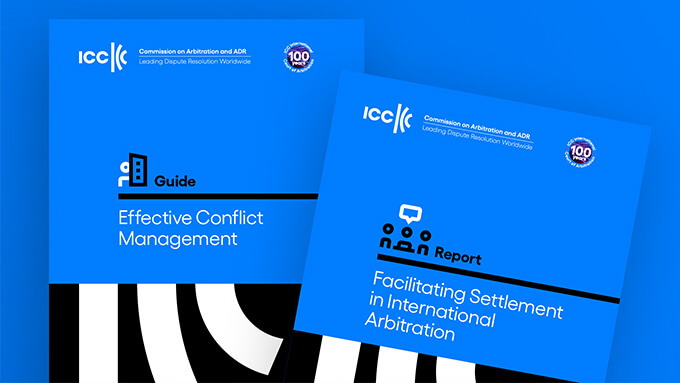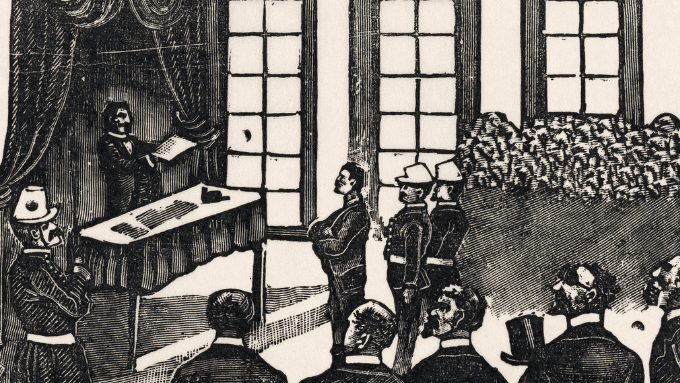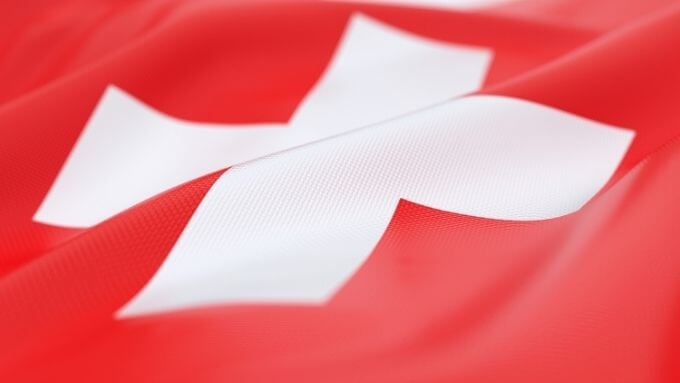Soft Law in International Arbitration
Introduction
Application of soft law in international arbitration has increasingly become more significant. Mainly due to the party autonomy that is dominant in arbitration states tends to regulate arbitration laws in a limited way. This created a new market for players, besides lawmakers to codify rules. These rules that are drafted by such private players have a substantive, or are of a procedural, nature. One of the most referred to substantive soft law is the UNIDROIT Principles of International Commercial Contracts (“UNIDROIT Principles”). The UNIDROIT Principles will be referred to when an arbitral tribunal is in the phase of resolving the dispute (i.e. when the merits are examined). However, arbitration is a dispute resolution mechanism, and bears a significant amount of procedural matters, as well as soft law that aim to regulate such procedural matters, and which are arbitration specific, will be the main focus of this newsletter article.
What is soft law in international arbitration?
There is no standard definition for soft law that is mutually agreed to, in practice. However, it is possible to put forth characteristics of procedural soft law, also referred to as para-regulatory texts (“PRTs”)[1] in arbitration[2]. The main purpose of these rules are to assist and guide practitioners, and especially arbitrators, where arbitration laws and rules are deficient.
Soft law can appear as guides, rules, codes, recommendations, guidelines, notes, etc. The title of these norms mainly depends on the drafters’ position and how it would like such rule to be understood.
Procedural soft law norms that are mostly referred to in arbitration are codified by arbitration-related bodies, such as the International Bar Association (“IBA”). The IBA is one of the institutions that drafts numerous PRTs. The most popular and widely used PRTs issued by the IBA are the IBA Rules on the Taking of Evidence in International Arbitration (“IBA Guidelines on Evidence”), and the IBA Guidelines on Conflicts of Interest in International Arbitration.
These norms are not considered as part of a state’s domestic law and are related to issues that are not covered by arbitration rules. This is one of the reasons when the International Chamber of Commerce Rules of Arbitration (“ICC Rules”) are applied, the parties and arbitrators rely on the IBA Guidelines on Evidence for the issues where the ICC Rules do not provide guidance. In other words, these procedural norms are of a complementary nature. This is also stated in the foreword of the IBA Guidelines on Evidence that “[t]he Rules are designed to be used in conjunction with, and adopted together with, institutional, ad hoc or other rules or procedures governing international arbitrations.”
One of the most differing characteristics of soft law from hard law is its non-binding effect. Soft law norms are mostly non-mandatory, not binding and, therefore, do not have full legal effectiveness. This is because the drafting authority either lacks such legal capacity, intends the rules to be not fully effective, or the implementing authority is unwilling to ensure full legal capacity.
It is possible that PRTs in its preamble or foreword state its nature and way of application. In the foreword of the IBA Guidelines on Evidence, it is stated that “parties and Arbitral Tribunals may adopt the IBA Rules of Evidence, in whole or in part, at the commencement of the arbitration, or at any time thereafter. They may also vary them or use them as guidelines in developing their own procedures.” It is also further stated under Article 1(1) of the IBA Guidelines of Evidence that the parties or the arbitral tribunal may decide on its application. In cases where parties decide that this would govern their proceedings, the arbitral tribunal is bound to apply them.
Impact of Soft Law
PRTs do not enjoy the same authority as arbitration laws. It would not provide a state court authority with immediate effect[3]. In order for PRTs to have authority, there should be a factor that gives such authority. An undisputed authority would be the agreement of the parties. It could be said that in cases where parties decide to apply a PRT in their arbitration agreement, this would bind the arbitral tribunal as the procedural law, as well as the applicable contract law.
Application of the PRTs impact state courts, arbitral institutions, and the parties. It should be noted that all of these actors must comply with the minimum standard imposed by the lex arbitri. They could use the PRT as a guide when interpreting lex arbitri, but are not bound by them.
The IBA Guidelines on Evidence has a unique position among other PRTs in practice; the arbitral tribunal tends to apply it even if parties do not decide on its application[4]. Applying these rules would facilitate arbitral tribunals’ work; provide some assurance to the parties that the tribunal would respect parties’ rights to due process. It should also be borne in mind that arbitrators and the parties should examine the necessities of each case, and then decide upon a PRT’s application, since in some smaller cases with domestic features, it would impose a burden to apply complex procedural rules.
The impact of such IBA Guidelines on Evidence on state courts is, however, weak. This is explained by some scholars that procedural issues regarding evidence appear before a state court within the scope of due process. Whether an arbitral tribunal applies the IBA Guidelines on Evidence would not be considered as a breach of the fundamental principles of procedure[5].
Possible Problems
In practice, it is questioned whether an arbitrator has the discretion to apply soft laws without the agreement of the parties. This may create arguments against the enforceability of an award, or a party could make a claim with regard to a fair trial.
Another important issue with regard to PRTs is whether an award could be challenged based on a PRT. In other words, could a party challenge the award by claiming that the arbitral tribunal violated a PRT. The answer to this question will be different for each PRT.
In Switzerland, the Swiss Federal Tribunal tends to refer to the IBA Guidelines on Conflicts of Interest in International Arbitrations when it examines the independence and impartiality of the arbitrators. However, non-compliance with other PRTs is almost never an issue for annulment[6].
Conclusion
Procedural soft law or PRTs are seen as important sources for players in international arbitrations that should be embraced by the arbitration community. Even though there are concerns as to PRTs’ legal effectiveness and legitimacy, or as to its application and the award’s enforceability and annulment, procedural soft law norms are increasingly adopted by arbitrators to fulfill their duties to conduct fair and impartial proceedings. Their adoption also helps the parties to picture the frame of their proceedings and avoid unexpected procedural uncertainties.
[1] For the purpose of this newsletter article, “soft laws” and “PRTs” will be used, interchangeably.
[2] Favalli, Daniele, An Overview of Existing Para-regulatory Texts (“PRTs”): Analysis, Facts and Figures, ASA Special Series No. 37, p. 1-16; Daniel p.4: “Legal texts covering substantive law aspects may also be regarded as soft laws and may, in fact, incorporate aspects similar to PRTs when their application is not directly provided for in the contract. These legal texts are not PRTs, but binding provisions, such as the ICC Incoterms, UNIDROIT Principles of International Contracts, and the principles of European contract law.”
[3] Stacher, Macro, The Authority of Para-Regulatory Texts in ASA Special Series No: 37, p. 108.
[4] Kaufmann-Kohler, Gabrielle, Soft Law in International Arbitration: Codification and Normativity, Journal of International Dispute Resolution, 2010, p. 14.
[5] Kaufmann-Kohler, p.14.
[6] Gross Balz, Stojiljkovic Mladen, The Challenge of an Arbitral Award on the Basis of a PRT in ASA Special Series No: 37, p. 127-138.
All rights of this article are reserved. This article may not be used, reproduced, copied, published, distributed, or otherwise disseminated without quotation or Erdem & Erdem Law Firm's written consent. Any content created without citing the resource or Erdem & Erdem Law Firm’s written consent is regularly tracked, and legal action will be taken in case of violation.
Other Contents

Emergency arbitration addresses the need for interim protection before the arbitral tribunal is constituted in institutional arbitrations. Arbitral institutions establish short timeframes to ensure parties can obtain interim relief quickly. For example, the International Chamber of Commerce (“ICC”) requires that the emergency...

International arbitration remains the preferred mechanism for resolving complex cross-border disputes. Yet despite its advantages—neutrality, enforceability, flexibility—arbitration is frequently criticized for being too slow, too expensive, and too procedurally heavy. Often, parties proceed through hearings and...

For arbitral awards rendered in international commercial arbitration to produce legal effects in foreign jurisdictions, they must be subjected to proceedings for “recognition” and “enforcement.” This process is governed by the New York Convention as well as by the provisions of the Law on Private International Law...

Arbitrability, the determination of whether a specific subject matter can be resolved through arbitration, constitutes a fundamental aspect of arbitration within the scope of international commercial dispute resolution. This concept draws a delicate balance between party autonomy—a fundamental principle of arbitration...

The recognition, enforcement, and annulment of foreign court and arbitral awards in Türkiye are processes in which public policy emerges as one of the most critical criteria for review, both in theory and in practice. The Court of Cassation decisions determine the direction of case law regarding the scope and...

As is well known, the action for annulment of objection is a special type of lawsuit regulated under Article 67 of the Turkish Execution and Bankruptcy Law No. 2004 (“EBL”). The primary objective of this action is to nullify a debtor’s objection to execution proceedings. Despite its procedural function of facilitating...

On 16 December 2024, the London Court of International Arbitration (“LCIA”) released its third batch of challenge decisions covering the period from 22 July 2017 to 31 December 2022. The LCIA has also issued a detailed commentary that identifies key legal themes and analytical trends, offering practitioners...

The International Chamber of Commerce (“ICC”) has published its report on the dispute resolution statistics for 2023 (“Report”) , shedding light on the evolving landscape of international arbitration...

Syndicated loans undoubtedly hold a significant position among global financing models. In 2023 alone, 3,655 syndicated loans were provided to companies in the US, with their total value reaching USD 2.4 trillion...

Preliminary attachment refers to the temporary seizure of a debtor's assets to secure a creditor's claim. While it serves as a vital instrument for safeguarding the rights of creditors, it is subject to specific and stringent conditions under Turkish law to prevent any potential misuse...

One of the most important reasons for parties to choose arbitration is the opportunity to freely choose their arbitrators. This freedom granted to the parties also distinguishes arbitration from proceedings before state courts, where the parties are deprived of the power to determine the judges who will conduct the...

The 6th Civil Chamber of the Court of Cassation ruled on October 12, 2022, that national courts have jurisdiction over objections to provisional measures in international arbitration disputes...

The declaration of intent to resolve disputes through arbitration is the fundamental constituent element of an arbitration agreement. To speak of a valid arbitration agreement, the parties' intention to arbitrate must emerge in a way that leaves no room for dispute...

In the wake of the evolving dynamics of commercial transactions, the Netherlands Arbitration Institute Foundation (NAI) announced new arbitration rules . 2024 NAI Arbitration Rules are in force as of 1 March 2024 and will be applicable on proceedings filed on or after this date...

With the global shift to online activities, domain names play a crucial role in identifying businesses. It is more common than ever for a domain name to be registered that is confusingly similar to a trademark or service mark...

The ICC Commission on Arbitration and ADR (“Commission”) published a new guide and report with the aim to increase awareness on alternative dispute resolution (“ADR”) mechanisms to prevent disputes and strengthen the relationship between all stakeholders.The Guide on Effective Conflict Management...

Mergers and Acquisitions (“M&A”) are restructuring of companies or assets through various types of financial transactions, such as mergers, acquisitions, purchase of assets, or management acquisitions. This Newsletter article covers M&A disputes being solved before arbitral tribunals.

In the context of arbitration practice, the principle of revision au fond means that the courts can not examine the merits of a dispute when reviewing an arbitral award. This principle is most commonly encountered in set aside and enforcement proceedings. An arbitral award is evidence of the parties’ willingness...

Under Turkish law, parties may agree on the settlement of disputes that have arisen or may arise, regarding the rights that they can freely dispose of, by arbitration. However, disputes which are not subject to the will of parties, such as the disputes relating to in rem rights of immovables, bankruptcy law...

On 4 September 2020, a research project “Does a Right to a Physical Hearing Exist in International Arbitration?” was launched by an International Council for Commercial Arbitration (“ICCA”) taskforce. Due to the Covid-19 pandemic, many arbitration hearings were held online. Many institutional rules...

Dubai International Arbitration Center amended its Arbitration Rules on 25 February 2022. The 2022 Arbitration Rules were published on 2 March 2022 and came into effect on 21 March 2022. The Rules will be applied to arbitrations that are filed after 21 March 2022; unless parties agree otherwise...

In the aftermath of the Achmea decision, controversies on intra-EU arbitrations continue. Most recently, the Paris Court of Appeal has annulled two arbitral awards rendered against Poland. Meanwhile, the Higher Regional Court of Berlin has refused to declare that an Irish investor’s ICSID claim...


Under Turkish law, the legal remedy that can be applied against arbitral awards is an annulment action. Law on International Arbitration No. 4686 (“IAL”) finds its application area in arbitration proceedings where Turkey is the place of arbitration...

It is well known that following a decision of the Court of Justice of the European Union, problems arose related to arbitration of intra-EU disputes, and particularly arbitration under the Energy Charter Treaty...

Arbitration in corporate law contains controversial elements in many respects, especially the issue of arbitrability. Even in legal systems where these disputes are considered to be arbitrable, uncertainties remain on whether an arbitration clause can be included in the articles of...





Arbitration has benifited from a great increase in the use of technology which has directly effected the conduct of proceedings. More particularly, with digitalization, the way that we conduct arbitration proceedings has been changed to reflect the current needs of parties, with an aim of increasing time...
































































